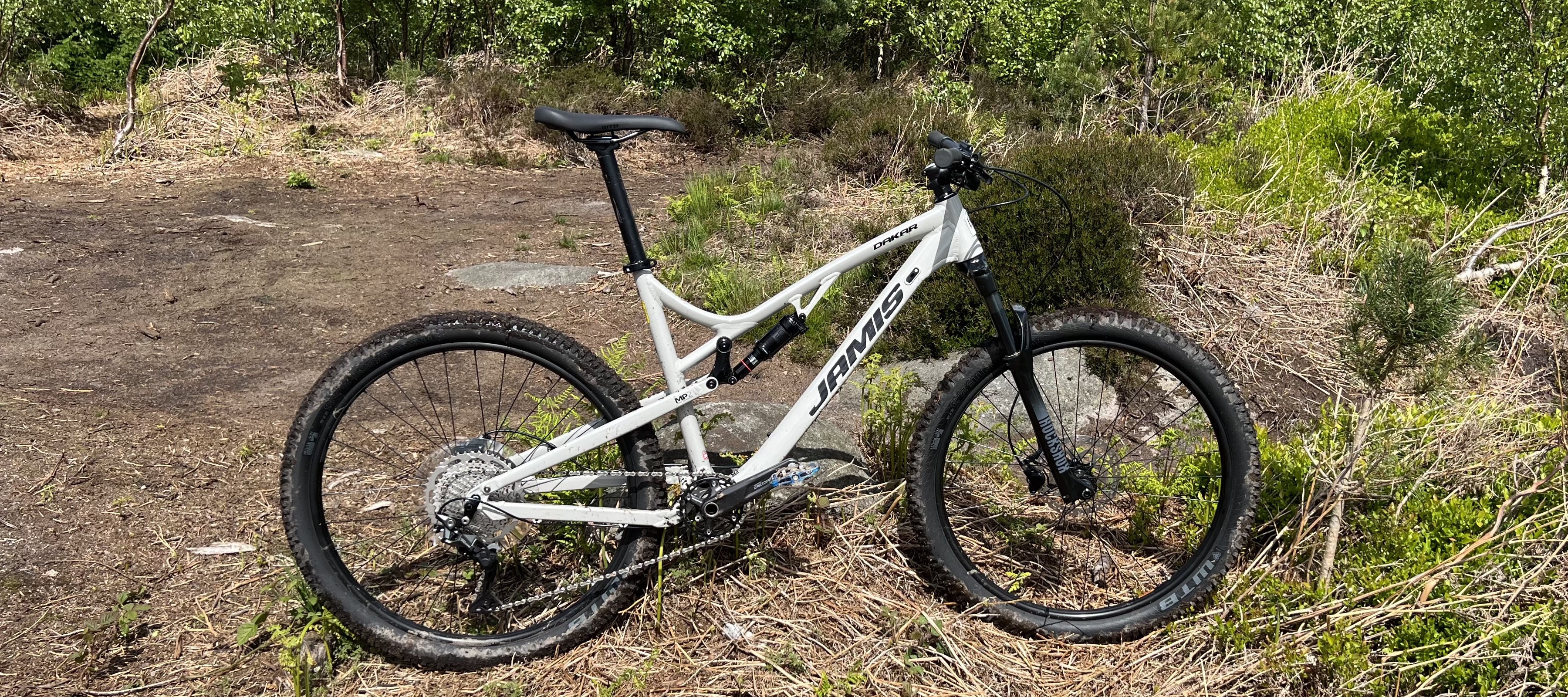Bike Perfect Verdict
The Dakar's geometry and wheel size is dated but it’s still a very well specced and enjoyably engaging hardtail beater for the money .
Pros
- +
Enjoyably agile ride on easier trails
- +
Comfier and more controlled than a hardtail
- +
Almost complete Shimano stop and go gear
- +
RockShox suspension
- +
Tubeless ready WTB tires and wheels
Cons
- -
Steep and short geometry is nervous at speed
- -
Gagging for a dropper post upgrade
- -
Brakes are limp and numb (but reliable)
Why trust BikePerfect
The latest budget mountain bikes aren’t quite what they used to be in terms of decent value spec, so is using an older frame design a valid way to save money and still provide decent parts? The Jamis Dakar certainly creates a strong argument to not get too hung up on geometry or wheel size and enjoy a very trustworthy, trail worthy parts pick for the price.
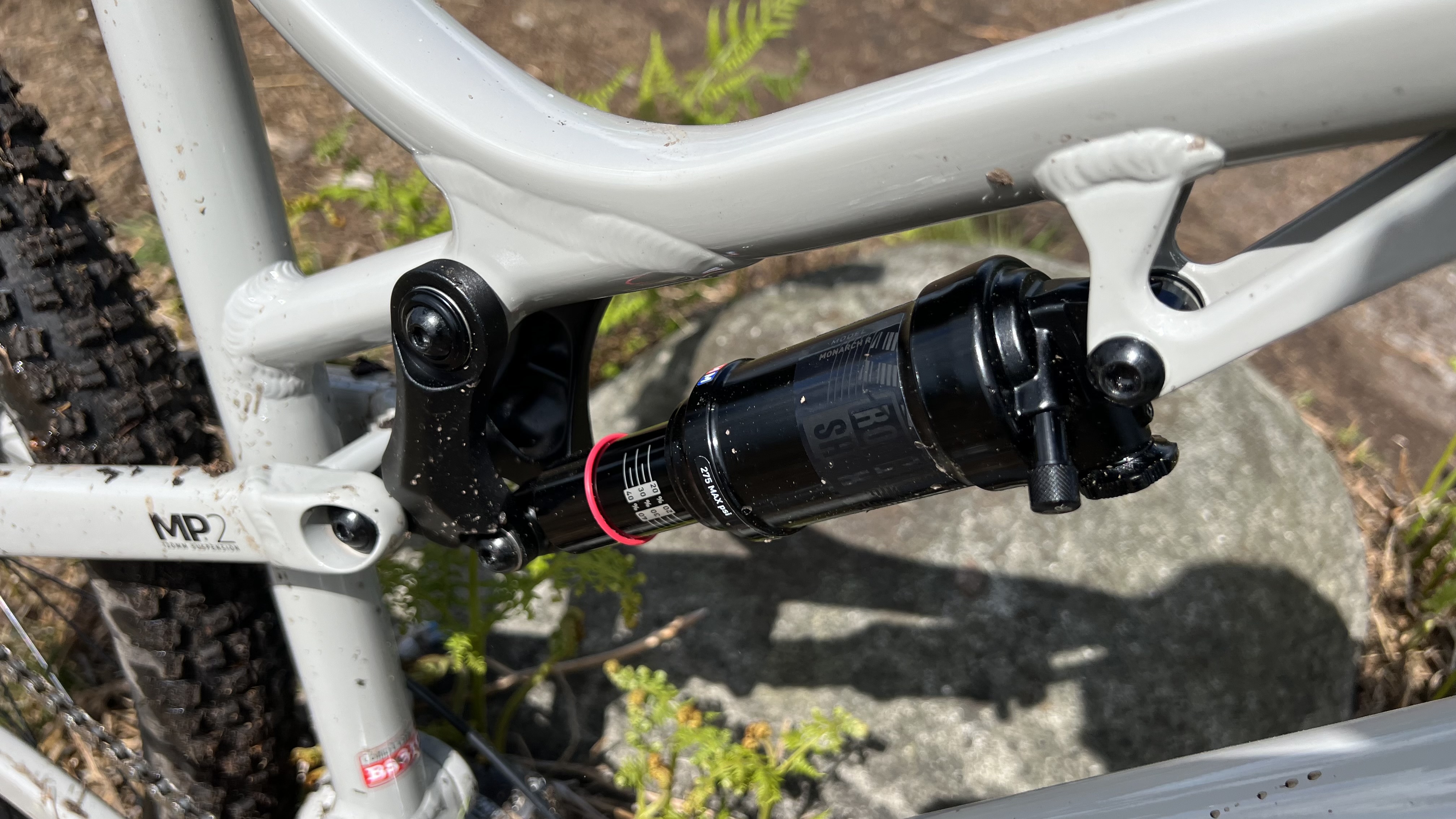
Design and geometry
As well as a decent array of componentry, the alloy frame is decent quality too. You get triple butted tubing to reduce weight, with extra bracing under the downtube/headtube junction and an extra spar reinforcing the upper linkage mount. Internal control lines are held securely in bolted inserts and there’s room for a large bottle on the downtube mount. The chunky square seatstays get a double-sided pivot above the bolted rear axle dropout too. This means the rear wheel still curves in a simple arc, but the leverage and behavior of the rear shock, and therefore suspension, can be altered by the linkage that drives the shock itself. There’s no chain slap protection on the asymmetric dropped chainstay though, so that’s something to think about fitting.
The rear spacing is older 142mm rather than 148mm wide ‘Boost’ standard and the wheels are smaller 27.5in rather than the increasingly universal 29in. Geometry is dated too and while the measured head angle is half a degree slacker than Jamis claim at 67.5 degrees, that’s still steep for a trail bike, especially one with smaller wheels. The 463mm reach is short for a large frame while the long 480mm seat tube makes sizing up awkward. Unlike the Jamis Faultline models we've reviewed, the straight seat tube means a reasonable 75-degree seat angle however high you have the saddle.
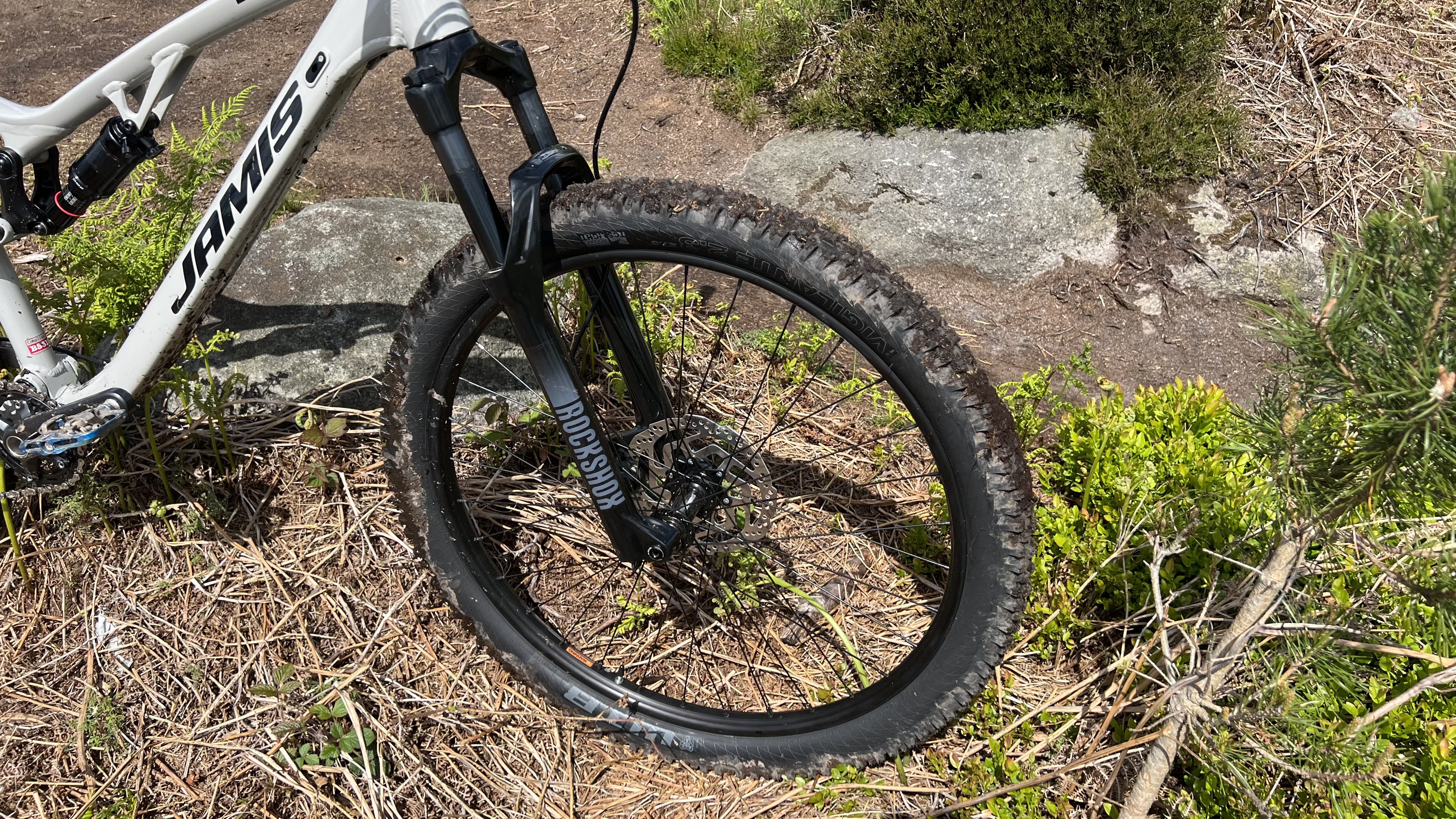
Components and build
Shimano components rule in terms of ultra-reliable performance at lower price points, so it’s great to see all the stop and go kit (apart from the KMC chain) coming from the Japanese brand. A through-axle type chainset and external bottom bracket from any brand – let alone Shimano are a real win for around a grand. A steel chainring adds long term durability but also a bit of weight. Steel legs make the Judy Silver TK fork heavy too, but RockShox are also literally miles ahead of other suspension brands when it comes to reliable long term performance at a reduced price. Shimano’s MT200 brakes are wooden in feel and low on power (especially with the 160mm rear rotor on the Jamis) compared to the best in category, but they’re super reliable and easy to work on.
UK bikes also get WTB tires rather than Vittoria with a toothy Vigilante up front and faster rolling Trail Boss at the back, plus a WTB saddle too. Race Face Ride bars, stem and seat post mean even the finishing kit is aspirational in terms of branding and they’re also well sized to match the handling. The super low price is only available to Go Outdoors card holders (with a £5 cost) which isn’t really an issue, but it’s fair to say you might not get the same level of set up support and general advice than you would from a dedicated bike shop. It should be better than just getting a bike in a box though.
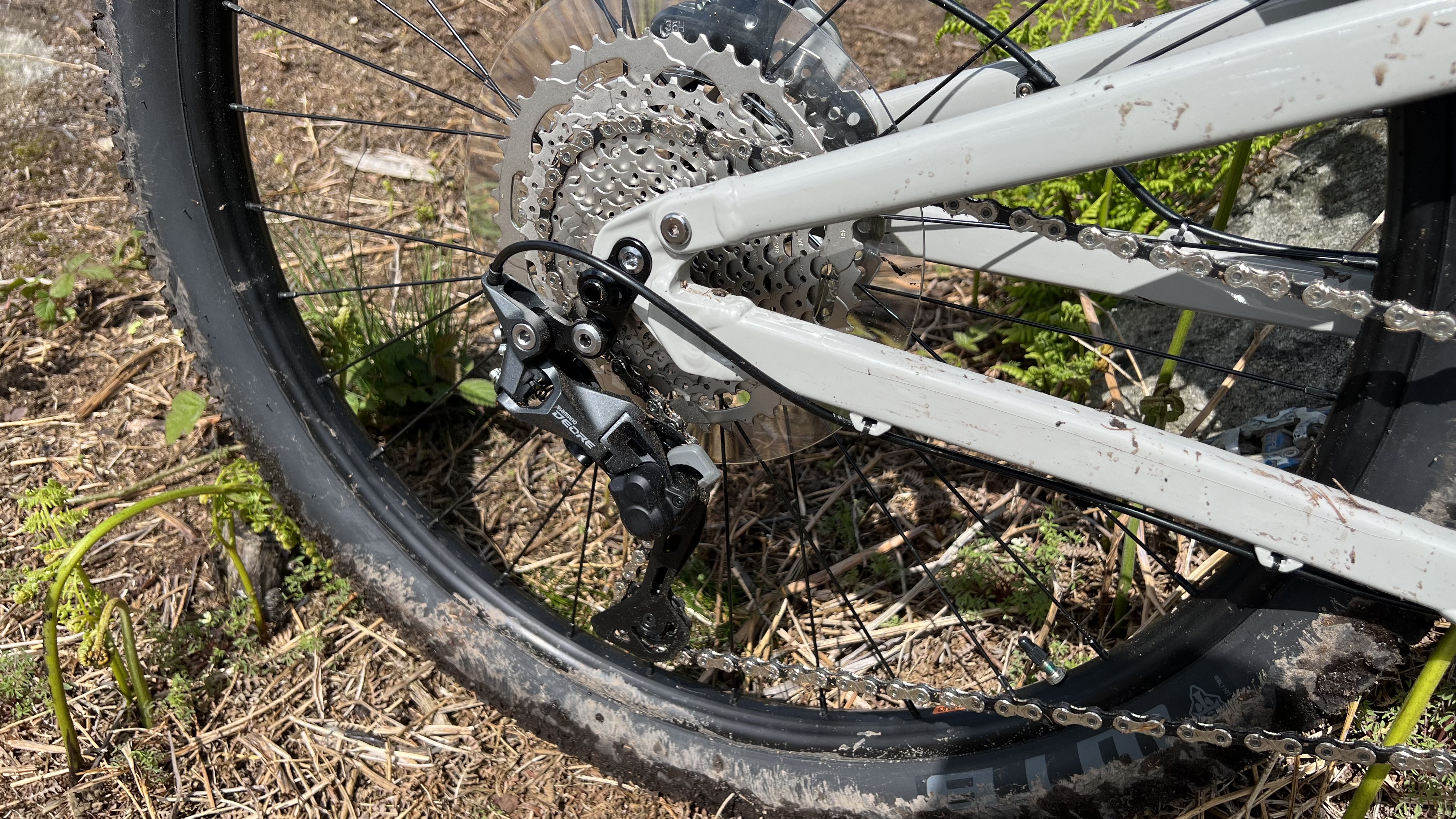
Ride, handling and performance
With balanced handling and a low weight for the money, the Dakar makes a positive first impression on easier trails. It’s quick to turn and the Fast Rolling, Light versions of the WTB tires do a good job of masking the slower roll of the 27.5in wheels compared to a 29in bike. The compact overall dimensions are handy on tighter, slower switchbacks or naturally twisty rather than faster bermed trails too. While it takes some time for the rear pivots and shock to wake up and start moving, the front fork is plush and comfortable from the start. Adjustable air-springs and adjustable rebound damping lets you dial in basically decent suspension performance for a wide range of riders and styles. While they come with inner tubes fitted, both tires and rims are ready to turn tubeless if you get a tape and valve kit which adds another level of control and traction by making lower tire pressures an option.
There are moments on more technical trails where the agility of the steep and short frame with smaller wheels can sneak and tweak through easier than a slacker, longer bigger wheeled bike. Add in the inevitable ‘underdog effect’ that kicks in when I managed to keep more expensive/aggressively shaped bikes in sight and I still had a lot of fun chasing mates on red grade descents and sketchy off-piste runs.
There’s no doubt that I had to work harder to keep the bike straight and settled on challenging sections though, even when I slammed the seat to mimic a dropper post position. The fork gets increasingly unpredictable once significant sequential hits get into double figures with the skinny 30mm diameter legs adding twang and flick if you turn and/or brake aggressively. Numb brakes and harder compound tires definitely needed caution in wet and slippery conditions on a bike that was naturally keen to fold under me rather than truck on. The medium tune of the rear shock is geared more towards stable pedalling than supple traction too, so it can get clunky. It’s progressive enough to support the back end predictably rather than collapse without doing much if you’re splatting off drops or slamming into berms hard.
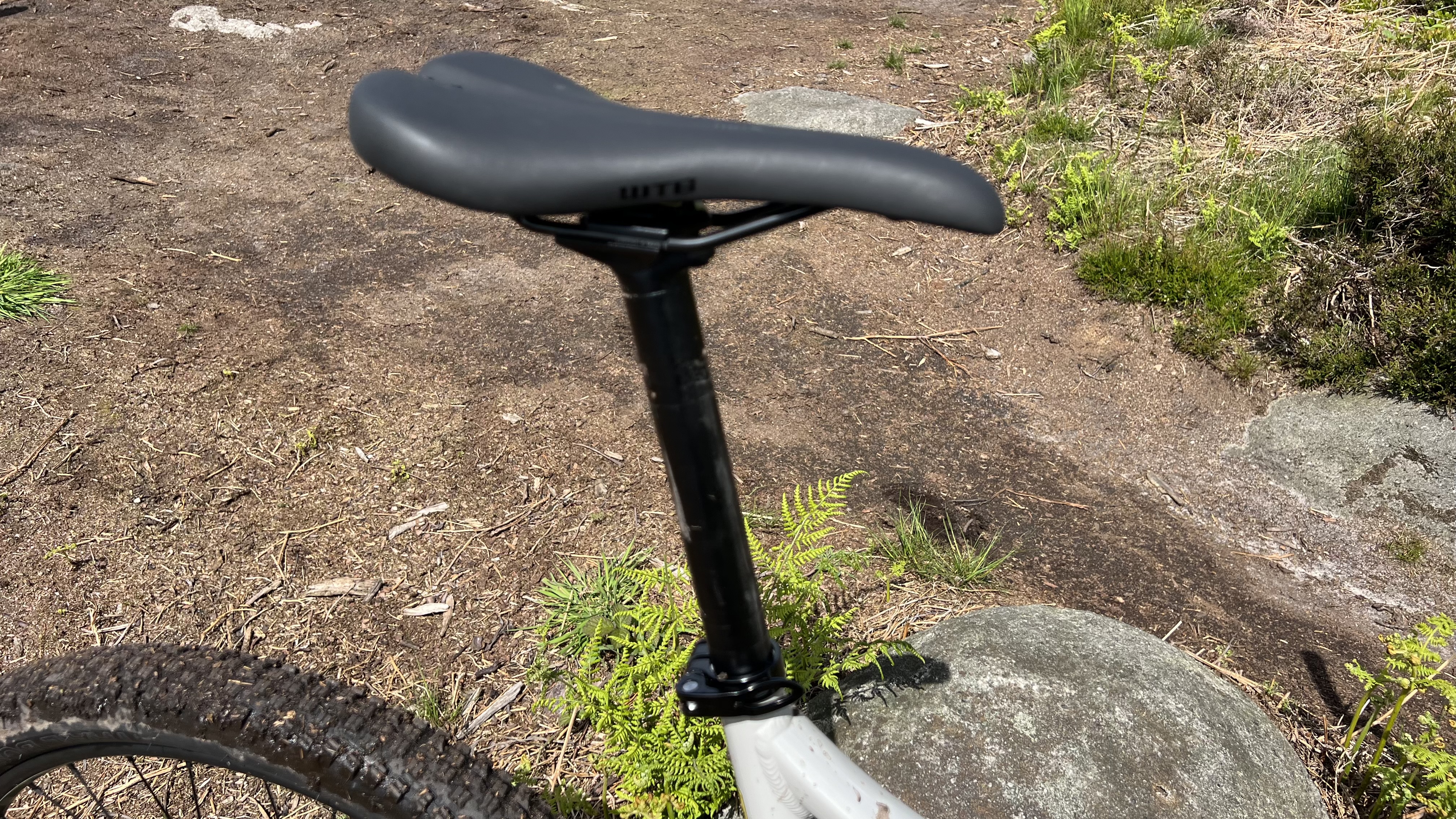
Verdict
27.5in rather than 29in wheels and a steep, short frame definitely date the Jamis Dakar and it feels sketchier on steep, fast or otherwise testing trails as a result. The simple brakes, rear shock and fork all have their limitations when worked hard too. Put it in context of cost though and the Dakar gives significantly more comfort and technical taming ability than a hardtail. It still has better spec in terms of performance, durability and brand name appeal than a lot of hardtails. It’s ready for a dropper post and a tubeless conversion kit too, or alternatively if you find the geometry limiting, as you progress you could switch the kit onto a secondhand frame with a better shape. In other words, it’s not perfect, but I still had fun riding it round my regular test trails at Stainburn and you could do a lot worse for the money.
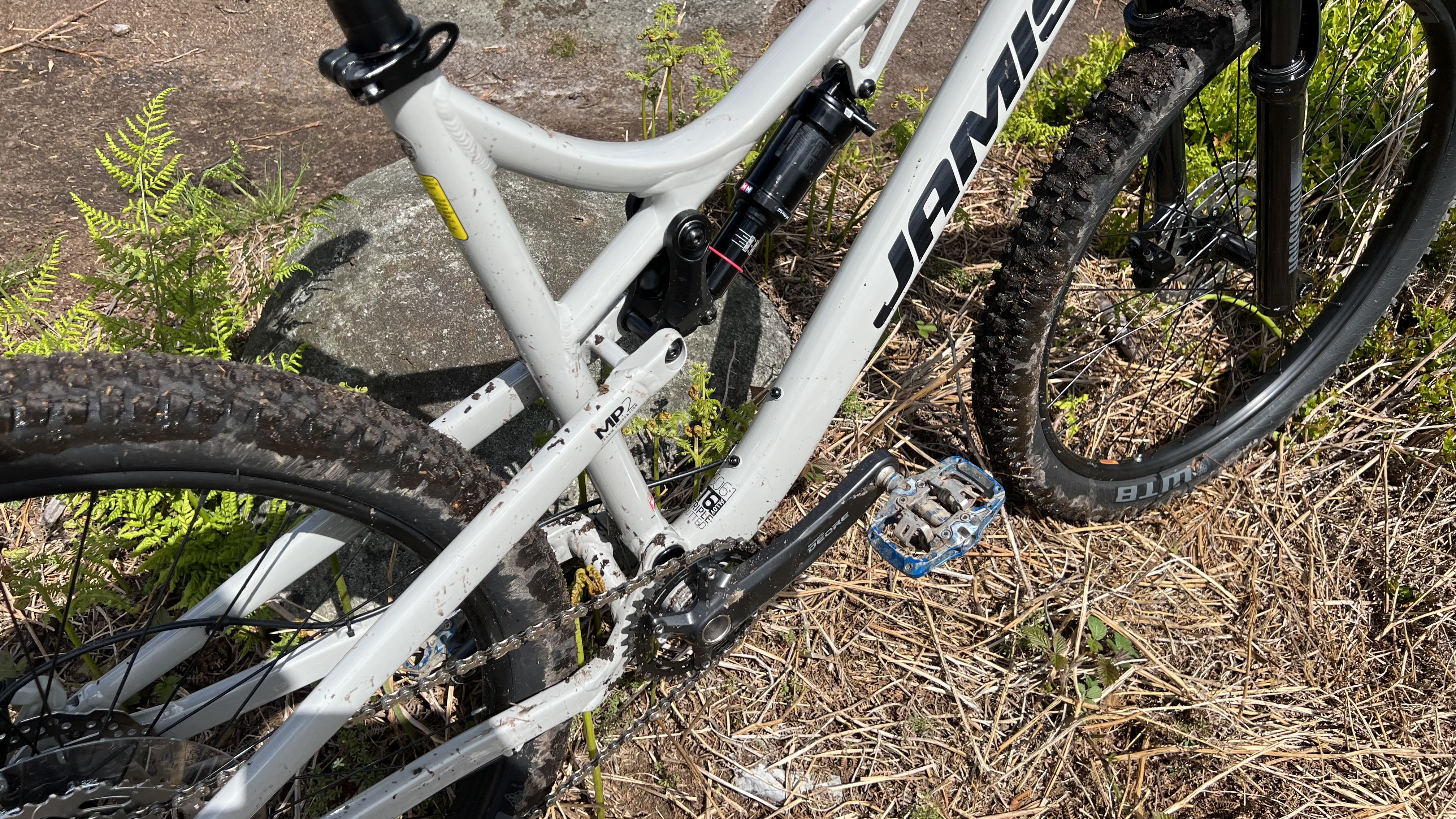
Test conditions
Surface: Roots, rocks, loam, mud, general dirt, trail centre gravel.
Weather: Damp to dry and everything in between
Trails: Natural woodsy singletrack and descents, blue and red grade trail centre trails, road and fire road ‘transfer stages’
Tech specs: Jamis Dakar
- Discipline: Trail
- Price: $1,699 / £999 (with £5 discount card)
- Head angle: 68 degrees
- Frame material: Triple-butted 6061 alloy
- Fork: RockShox Judy Silver TK 27.5″, Solo Air 120mm travel
- Shock: RockShox Monarch R 120mm travel
- Size: XS, S, M, L (tested) XL
- Weight: 14.68kg (size L)
- Wheel size: 27.5in
- Chainset: Shimano Deore 32T, 170mm chainset with Shimano bottom bracket.
- Rear mech: Shimano Deore, 10-speed
- Shifter: Shimano Deore, 10-speed
- Cassette: Shimano 4100, 10-speed 11-46T
- Chain: KMC X10
- Brakes: Shimano MT200 disc brakes with 180/160mm rotors.
- Tires: WTB Vigilante Fast Rolling Light 27.5 x 2.4” Front & WTB Trail Boss Fast Rolling Light 27.5 x 2.35” Rear, Tubeless
- Wheels: WTB STX i25 TCS 27.5″ tubeless rims, 32H, Shimano MT400 15x110mm front & 12x142mm rear hubs, stainless spokes
- Bars: Race Face Ride 760 x 35mm bar
- Grips: Jamis lock on
- Stem: Race Face Ride 50 x 35mm
- Seatpost: Race Face Ride fixed post
- Saddle: WTB Volt
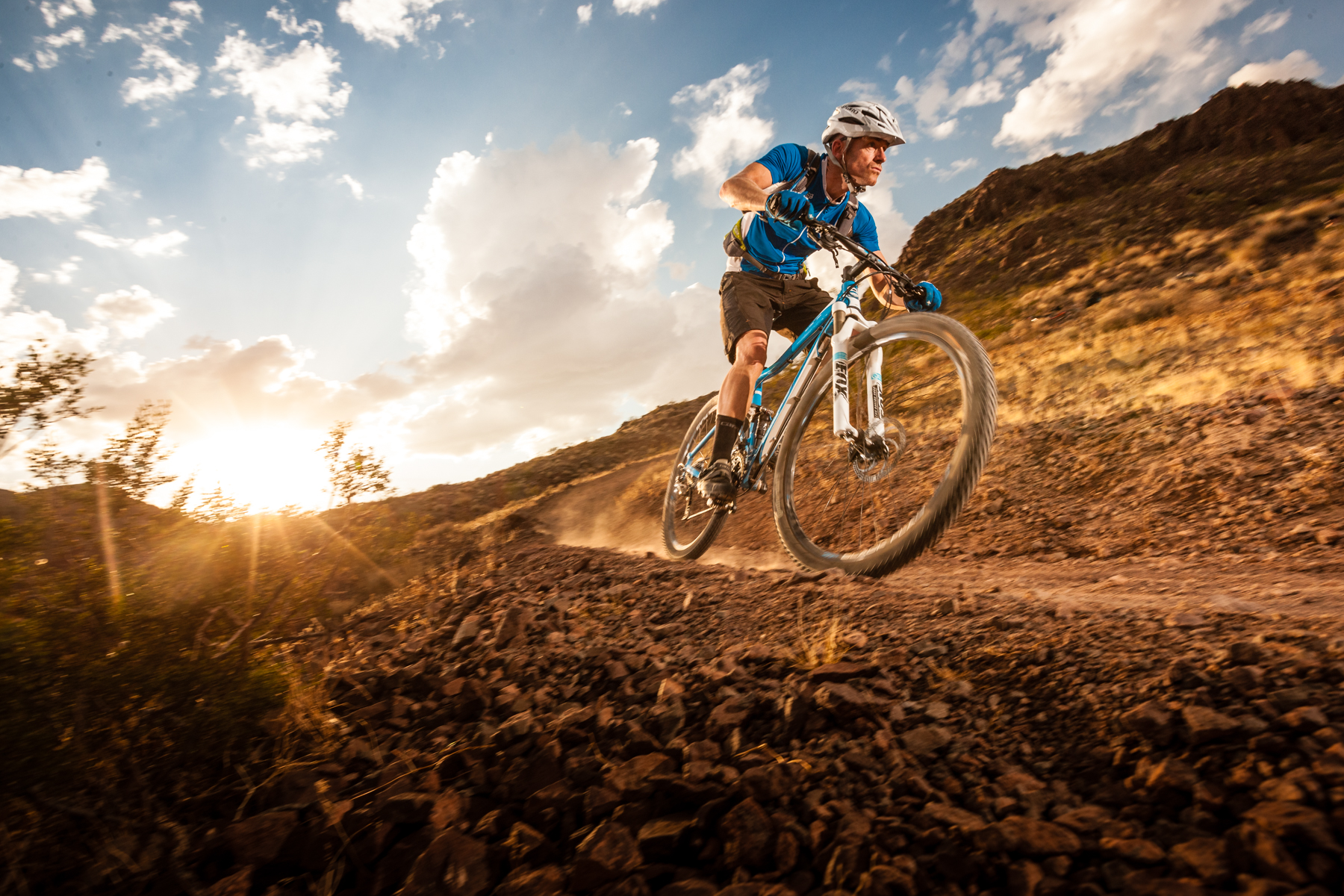
Guy Kesteven has been working on Bike Perfect since its launch in 2019. He started writing and testing for bike mags in 1996. Since then he’s written several million words about several thousand test bikes and a ridiculous amount of riding gear. He’s also penned a handful of bike-related books and he reviews MTBs over on YouTube.
Current rides: Cervelo ZFS-5, Specialized Chisel, custom Nicolai enduro tandem, Landescape/Swallow custom gravel tandem
Height: 180cm
Weight: 69kg
